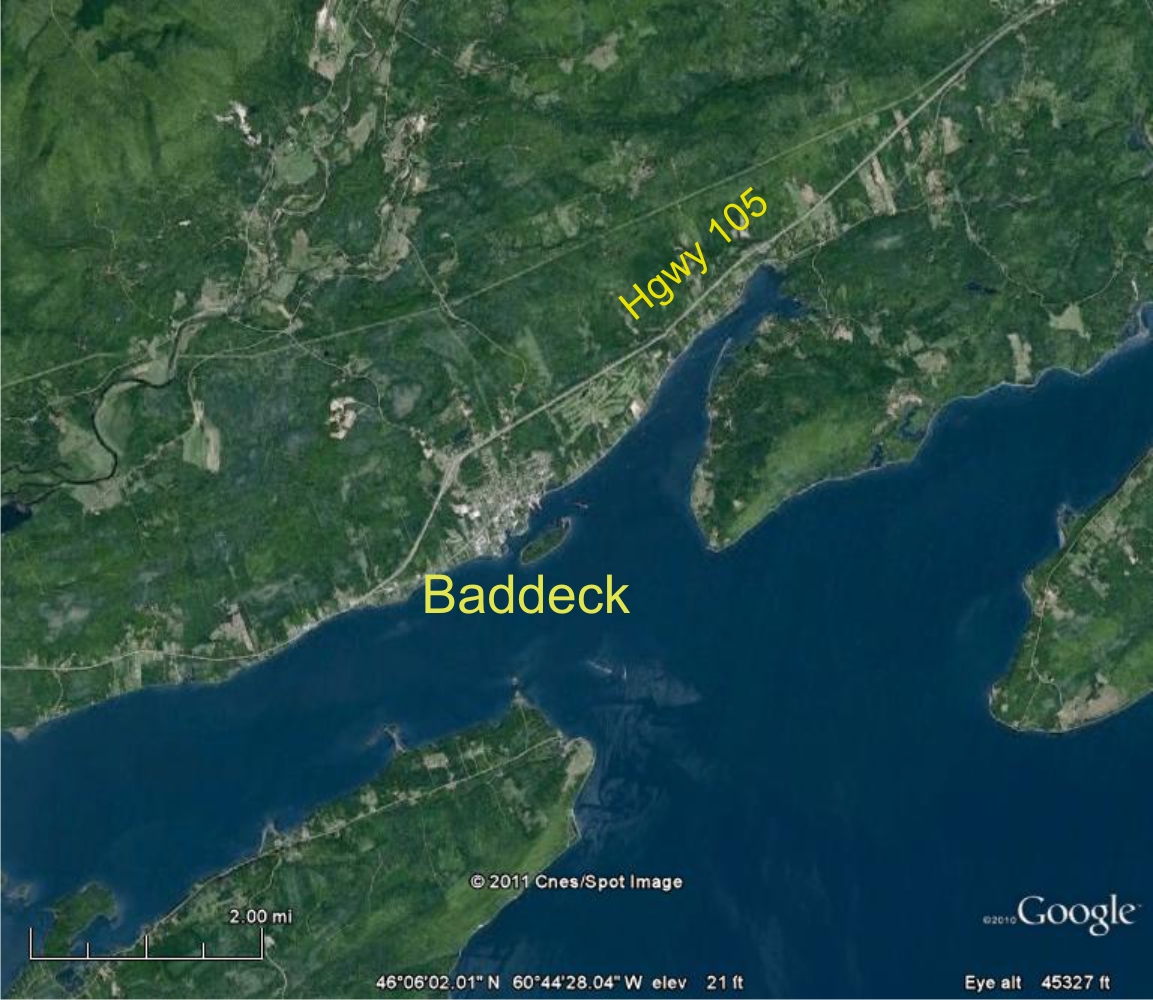
The Bras d'Or Stewardship Society headquarters are located in Baddeck, Nova
Scotia on the island of Cape Breton for legal and organizational purposes. Meetings will be held at different locations, to be publically announced. We can only become a strong organization with the help and co-operation of people who understand the fragile nature of the Bras d'Or Lake as an eco-system.
The Bras d'Or Lake is a deep inland sea at the heart of Cape Breton, in northern Nova Scotia, Canada. It is connected to the Atlantic Ocean at its northern reaches, through the Big Bras d'Or channel and through the historic St. Peters Canal in the south. The lake has an extremely low rate of circulation. Parts most distant from the entrance to the Lakes in the north have the lowest exchange rate of water. For instance the flushing rate of Whycocomagh Bay is over two years. People all around the Bras d'Or are increasingly concerned at how easily it can become polluted, by sewage, chemicals, shoreline scarification and unmonitored subdivision development. Presently, not enough is being done to protect the lake. In recent years, some beaches have been closed to swimming, and shellfish beds have been closed to fishing. An organization of people around the lake could do much to protect, conserve and restore the cleanliness and usefulness of these waters. Since l991 the Eskasoni Fish And Wildlife Commission and the Unama'ki Institute of Natural Resources have undertaken research programs to promote fish conservation and sustainable harvesting practices. The Bras d'Or Lakes provides a natural setting for the growing of oysters and mussels. This shellfish fishery has the potential of developing into a lucrative industry. At the time of the formation of the Society, 29 sites were closed to shellfishing due to bacterial contamination. After efforts spurred on by the Society, including a new sewage treatment plant was installed in Baddeck and the designation of the Bras d'Or Lakes as a boating 'no-dump' zone, water quality has improved somewhat. However, much remains to done; faulty private septic tank systems and sewage 'straight pipes' continue to degrade water conditions. A recent catastrophe in the form of a parasite, commonly known as MSX and probably introduced via ballast water dumps, has decimated oyster stocks and at present no oysters are allowed to be sold or transferred from the Lakes.
Theme by Danetsoft and Danang Probo Sayekti inspired by Maksimer